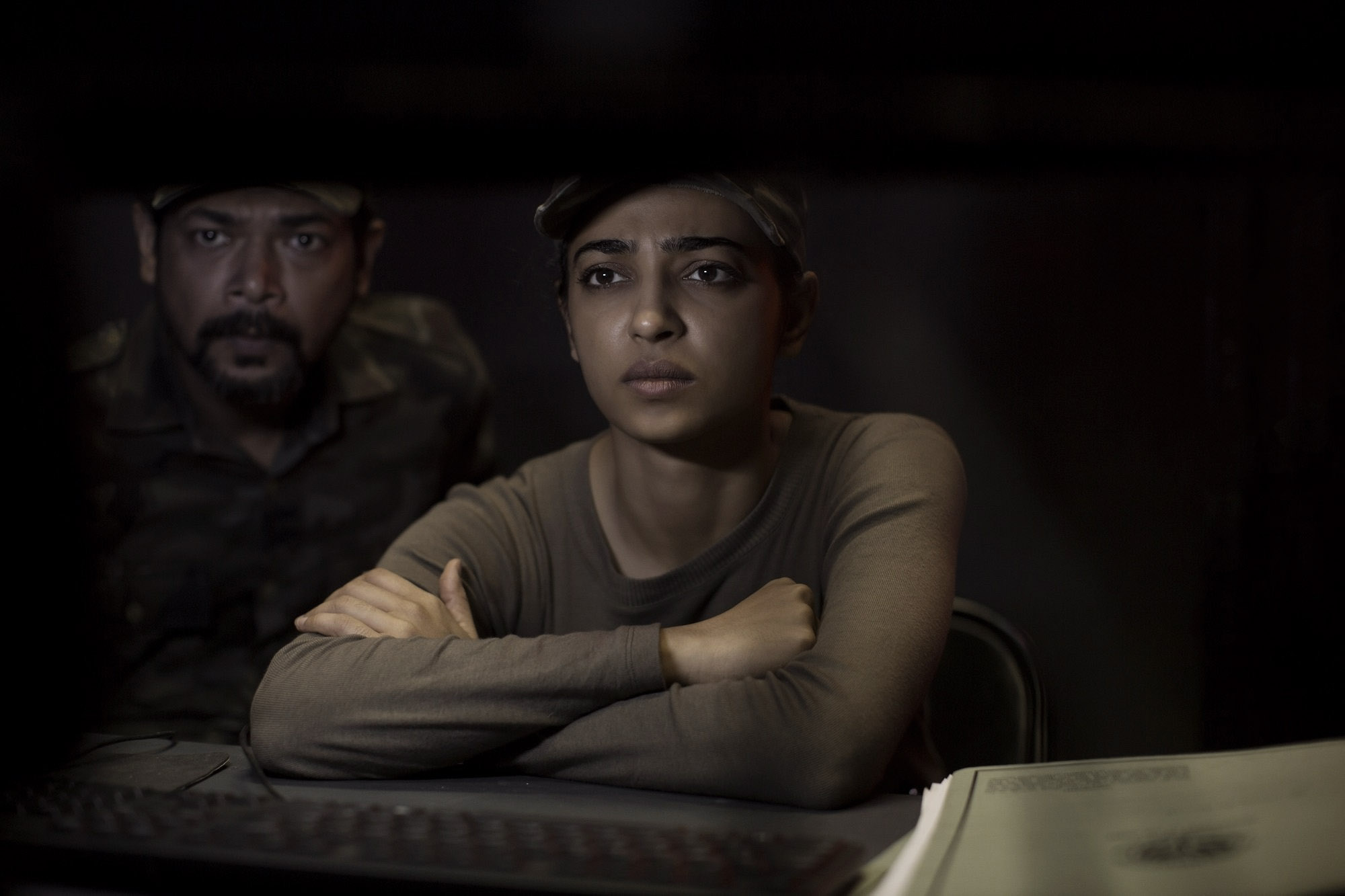Quietly released on 24th August, Ghoul is a sharply directed, enigmatically paced political allegory, with a dash of supernatural spices thrown in for good measure.
The little ads and marketing you may have seen for the miniseries suggests the reverse is true, as does the director himself. “Dystopian future is something I’ve always enjoyed seeing in fiction,” Patrick Graham said, explaining how the idea of Ghoul came to be. “So we thought it would be a nice backdrop to this oppressive, claustrophobic story to have this fascist state behind it all. But really the main bulk of the story came first, and the atmosphere we wanted to create came after.”
The Evil That Men Do
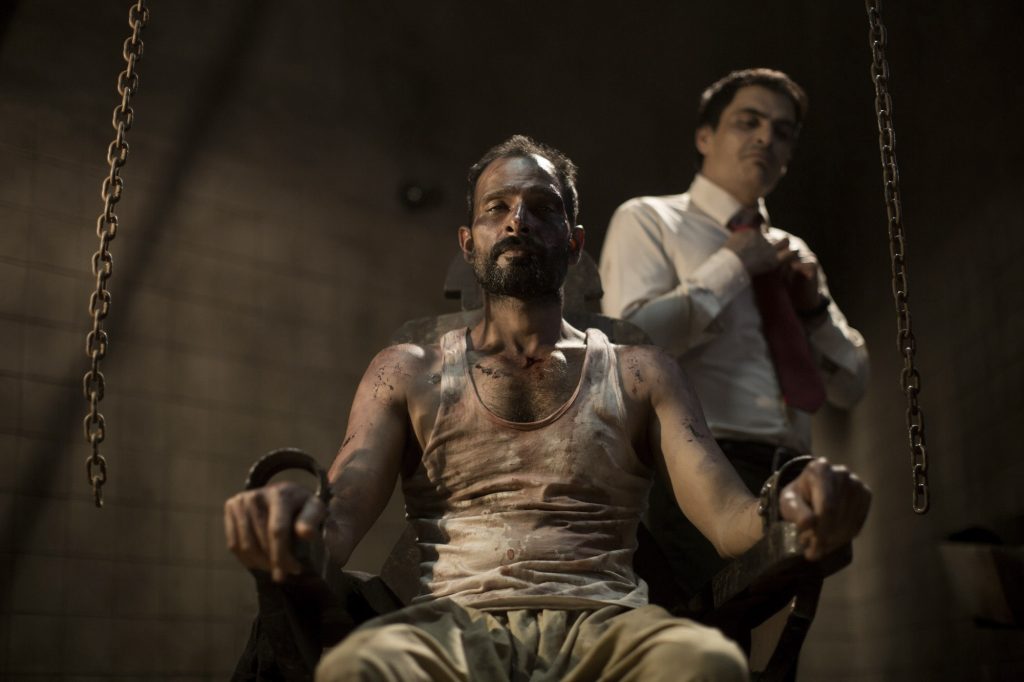
Ghoul unfolds in a dystopian India, suffering from sectarian conflicts and fascist state policies. Nida Rahim (Radhika Apte) chooses the state over her own minority roots and hands over her dissenting father to the state for reconditioning camps. Sometime later, she is assigned to Meghdoot 31, a remote interrogation facility to draw a confession out of Ali Saeed, a feared terrorist. Amidst tensions within and between the military staff and the prisoners, it soon becomes clear that there are other, far more sinister forces in play.
The allegory, while daring and thought provoking, is anything but subtle.
The persecuted minority, which includes intellectuals and priests, all bear Muslim names. Graham, however, does a great job in creating an oppressive, paranoid atmosphere. The limited number of locations also helped heighten the intensity. Originally intended to be a film, the three-parter was shot on location over one month, for fourteen hours a day, in a smelly, ‘damp setting with no sunlight’.
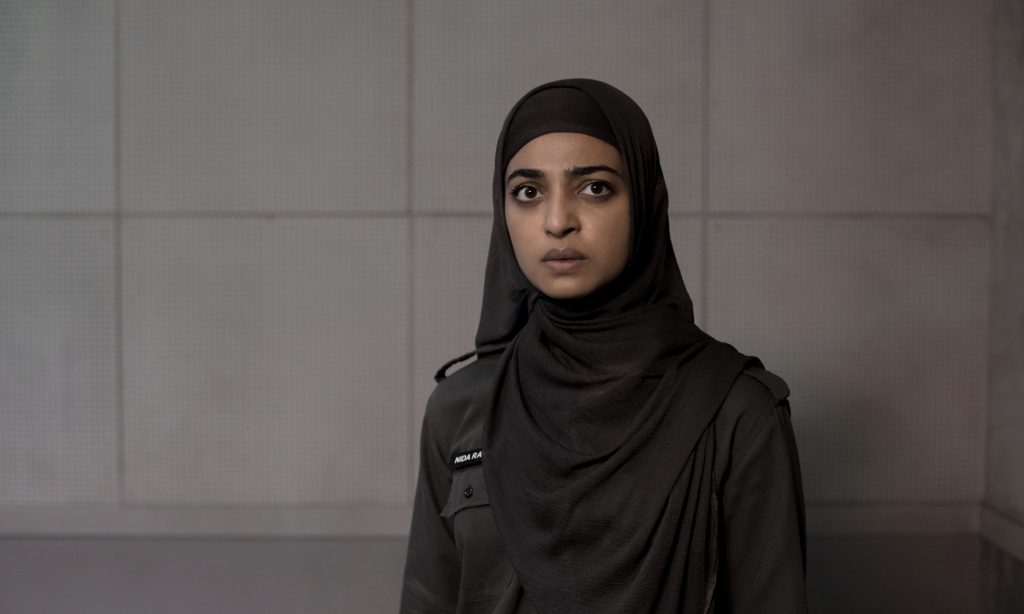
Produced through a unique collaboration between Ivanhoe, Blumhouse and Phantom Productions, it also features some serendipity in the form of the lead actress, Radhika Apte. This is her third Netflix feature in 2018, following Lust Stories and Sacred Games. “I’m very excited,” Apte commented on the coincidence. “I’m loving the attention, but it wasn’t by design.”
What Turns Good Men Cruel
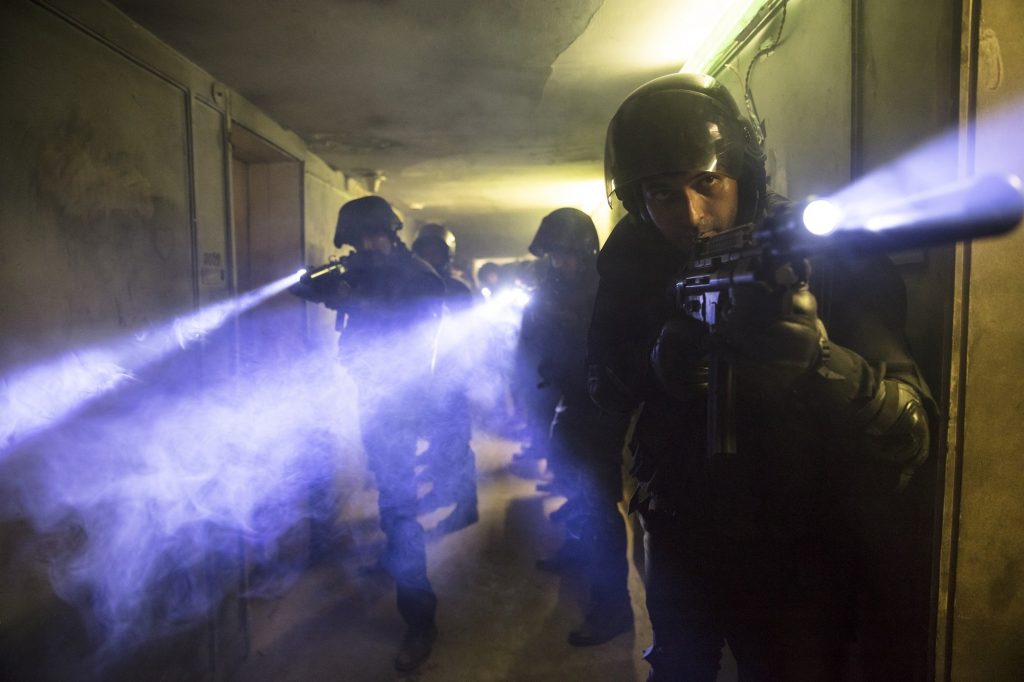
Sacred Games and Ghoul are different affairs, and rightfully so. While the former is a big budget blockbuster production, this is a more intimate story that succeeds more due to the competent cast and tight storytelling. Apte does a fine job as the morally conflicted daughter who comes to see both herself and the state in a new light as the story progresses.
Manav Kaul plays Colonel Sunil Dacunha, the decorated war hero in charge of Meghdoot 31. It’s a more introspective role compared to Apte’s Rahim. Dacunha has long surrendered his conscience to the orders of the state. His guilt, however, remains submerged and potent.
It’s this guilt, as well as the guilt of the rest of Meghdoot’s staff, that becomes fertile ground for the forces of chaos and terror to play with in the series’ third act, along with ideas of sedition and mutiny being played out both within the prisoners and the facility staff.
Demons in Disguise
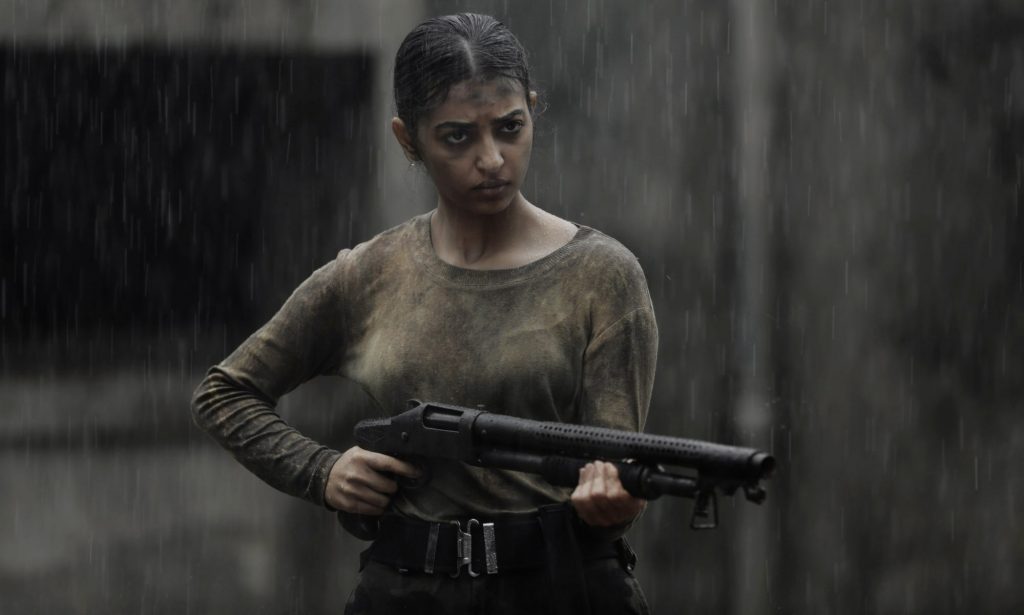
The supernatural aspects of the series, while novel, are a little underdeveloped and easy to counteract. Graham uses elements from Arabic folklore to great effect, but the horror of the story draws more from the Orwellian aspects of the setting. Graham was also conscious about limiting the use of jump scares. “Anybody can have a cat jump in through the window or have a bird hit a window pane. Jump scares are not the most challenging aspect of making a horror.”
The main antagonist turns the table on the military staff, preying on insecurities and flaws such as collateral damage and broken marriages before eating their flesh to steal their identities.
“I am nothing like them, Ahmed, and nor do I want to be,” is a key line that says volumes about Ghoul’s views on who the true monsters are.
This is underscored, to great dramatic effect, in the film’s climax, with a line that reminded me, oddly enough, of Geralt of Rivia from The Witcher 3: The Wild Hunt.
As a limited series, Ghoul also reminds me of The Thing, Alien and Pitch Black, as well as survival horror games such as Dead Space and F.E.A.R. The political elements borrow liberally from classics such as Fahrenheit 451, 1984 and A Clockwork Orange.
The Verdict
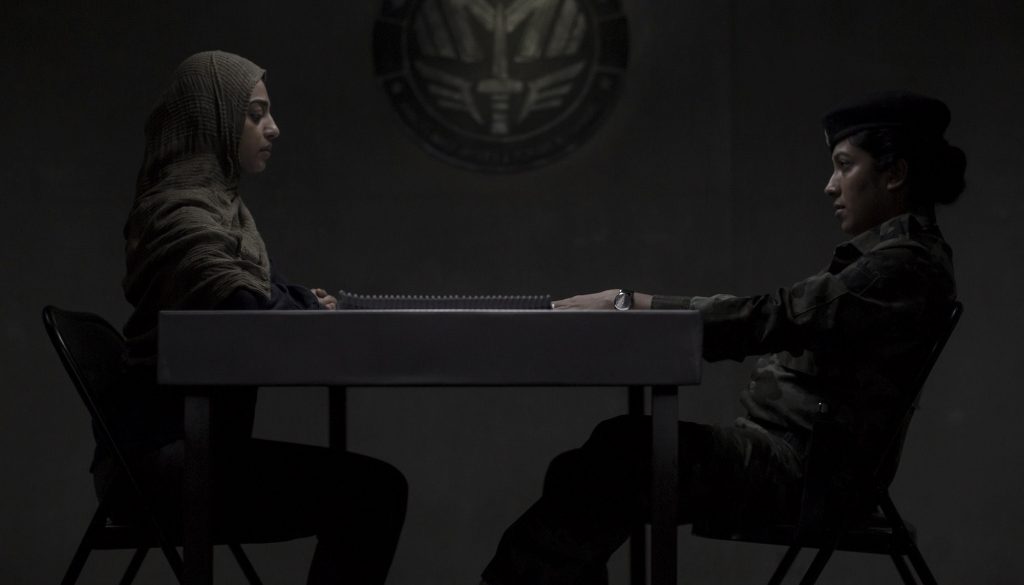
While it’s a good horror production, one can’t help but feel it could have benefited from a longer narrative that allowed more room for both the political and supernatural elements to breathe. Thankfully, the ending leaves room for a Season Two. “Yeah, anybody who watches it can very much realise that isn’t the end of the story,” Graham acquiesced when pressed on the series’ future.
Whatever lies in the future for Ghoul, Radhika Apte is optimistic about the future of Indian content on Netflix. “Sacred Games’ success has really made everybody believe that this is one of the biggest and best things that could happen right now.”
